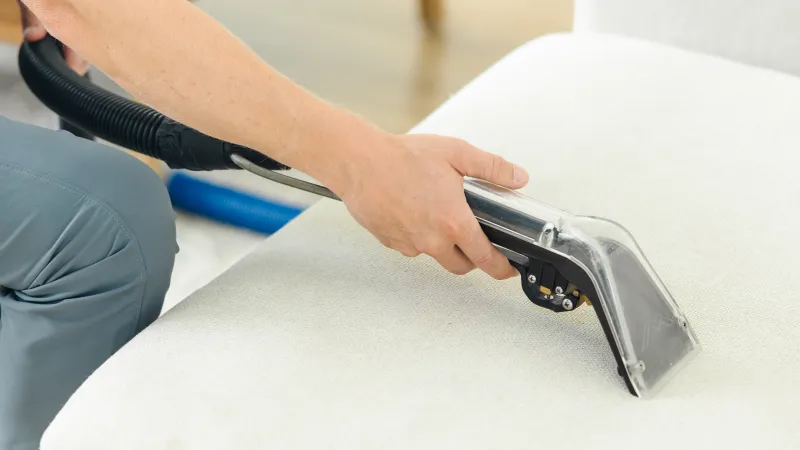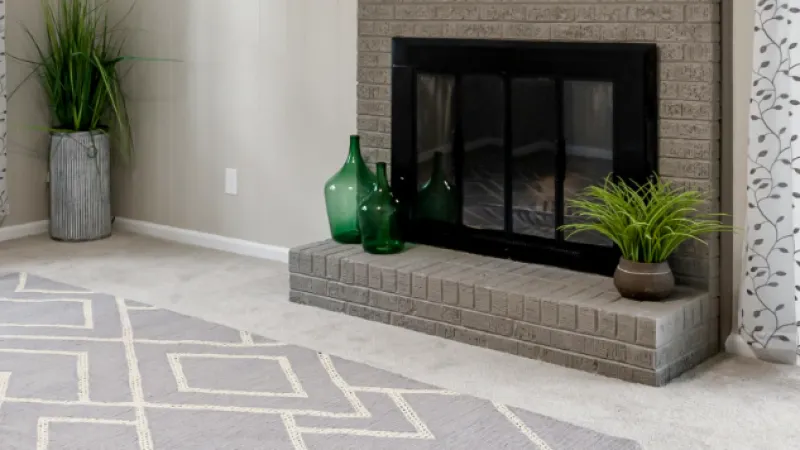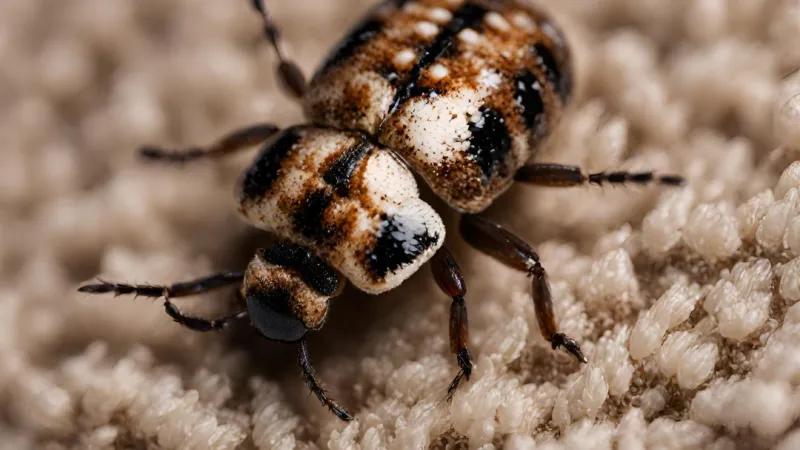Best Hypoallergenic Carpet & Rugs for Allergy & Asthma Sufferers
So many of us love the warmth, softness, coziness, and comfort provided by carpets, including our pets and kids! Most people with allergies, however, forgo these amazing carpet benefits because carpets harbor pollen, dust, animal fur, dirt, and chemicals that trigger allergic reactions.
While that's true, not all carpets are equal.
If you suffer from asthma and allergies, buying the best carpet for allergies can go a long way toward preventing allergy triggers.
Wool, olefin, nylon, and polyester are all hypoallergenic carpet options.
After reading this article, you won't have to forgo the comfort and warmth of a carpet so your allergies won't flair up. Even for all-year-round allergies sufferers, you can install carpets that won't aggravate your condition.
This article is for you if you're wondering what carpet is hypoallergenic and how to keep it clean to minimize allergens.
What Is Hypoallergenic Carpet?
Hypoallergenic carpets, known as carpets for allergies, are less likely to trigger allergic reactions. They're ideal for small children, the elderly, asthmatic, and people with allergies.
They have the low Volatile Organic Compounds (VOCs) label or the Carpet and Rug Institute's Green Label, indicating they emit the lowest VOCs.
Most low-pile carpets are hypoallergenic. Their short fibers and tight loops prevent carpet allergies because they don't shed much or trap many allergens.
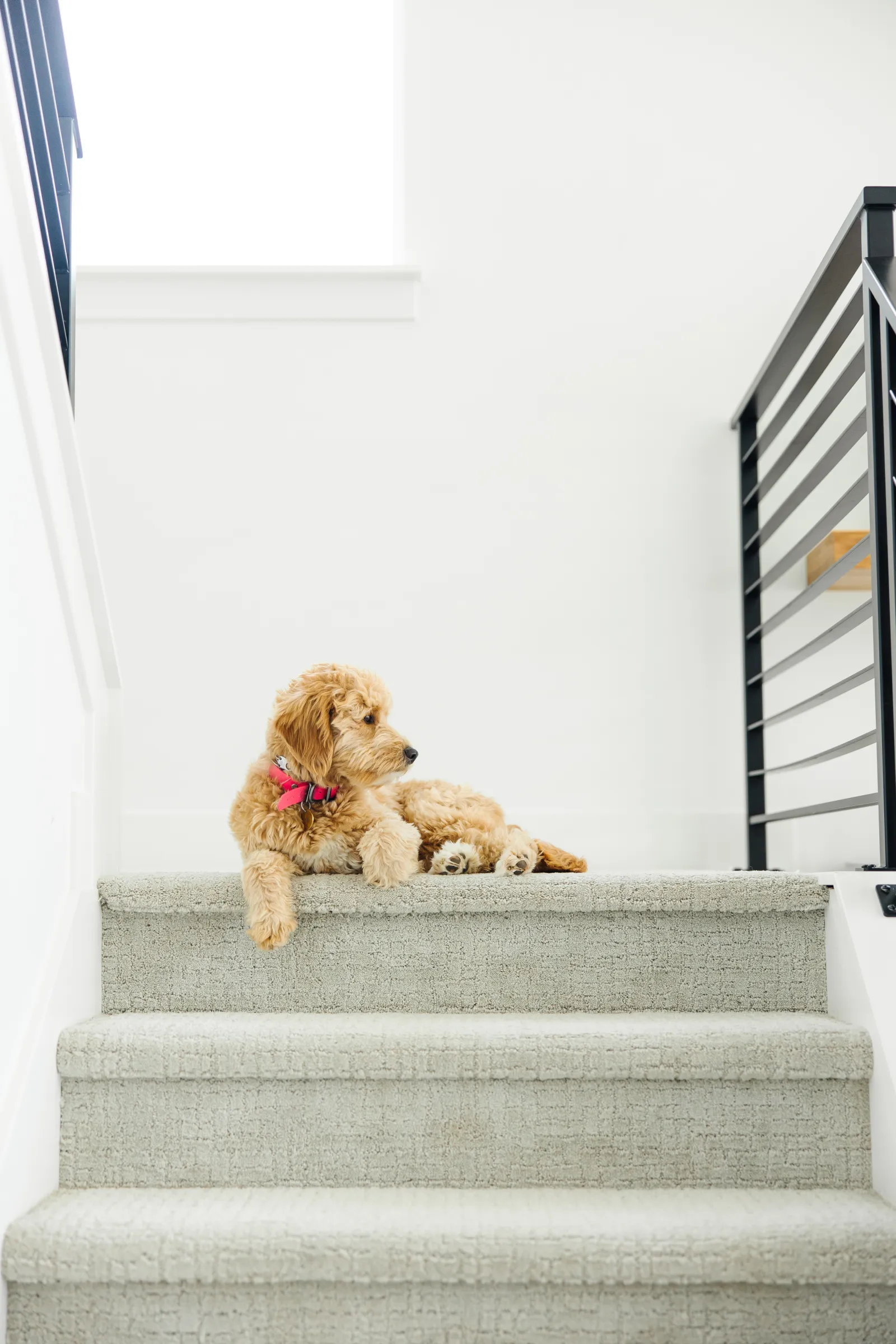
What Is the Best Hypoallergenic Carpet?
Polyester, nylon, olefin, and wool are the best hypoallergenic carpets because they don't trap dander, dirt, dust, and other allergens or shed their fibers.
Find out why these carpet materials are great for homes and commercial premises.
Nylon Carpets
Nylon is a silk-like thermoplastic which is resistant to mildew, moisture, dust, and dirt, making nylon carpets excellent for allergies and asthmatic people. Plus, they are easy to clean and maintain, and resist crushing, matting, and staining.
Olefin Carpets
Olefin is a man-made carpet fiber that naturally resists mildew, moisture, dirt, dust, and other allergens. It's the best carpet for allergy sufferers.
It's ideal for homes and offices with high traffic or areas in direct sunlight as it resists UV fading but cleaning olefin carpets can be difficult as it doesn't resist oily stains well.
Wool Carpets
Wool, an organic fiber derived from sheep, has natural hypoallergenic properties and absorbs air contaminants, such as cooking fumes, cleaning chemicals, and smoke.
So, is wool carpet hypoallergenic? Yes, unless you're allergic to wool.
Woolen carpets are great for allergies, eczema, and asthma due to their natural hypoallergenic properties, which help improve air quality.
Woolen carpets have coil-like shaped fibers, making it challenging for dust mites to thrive in them. They're also resistant to mildew, bacteria, and mold. Just make sure you clean wool carpets correctly and they can last a very long time.
Polyester Carpets
Polyester carpets come last among the most hypoallergenic carpets or rugs, but they repel water and are hence resistant to moth, mold, and mildew.
Polyester carpets are also easy to clean, keeping allergens at bay. However, they wear out faster than nylon, wool, and olefin, so you might have to replace them more often.
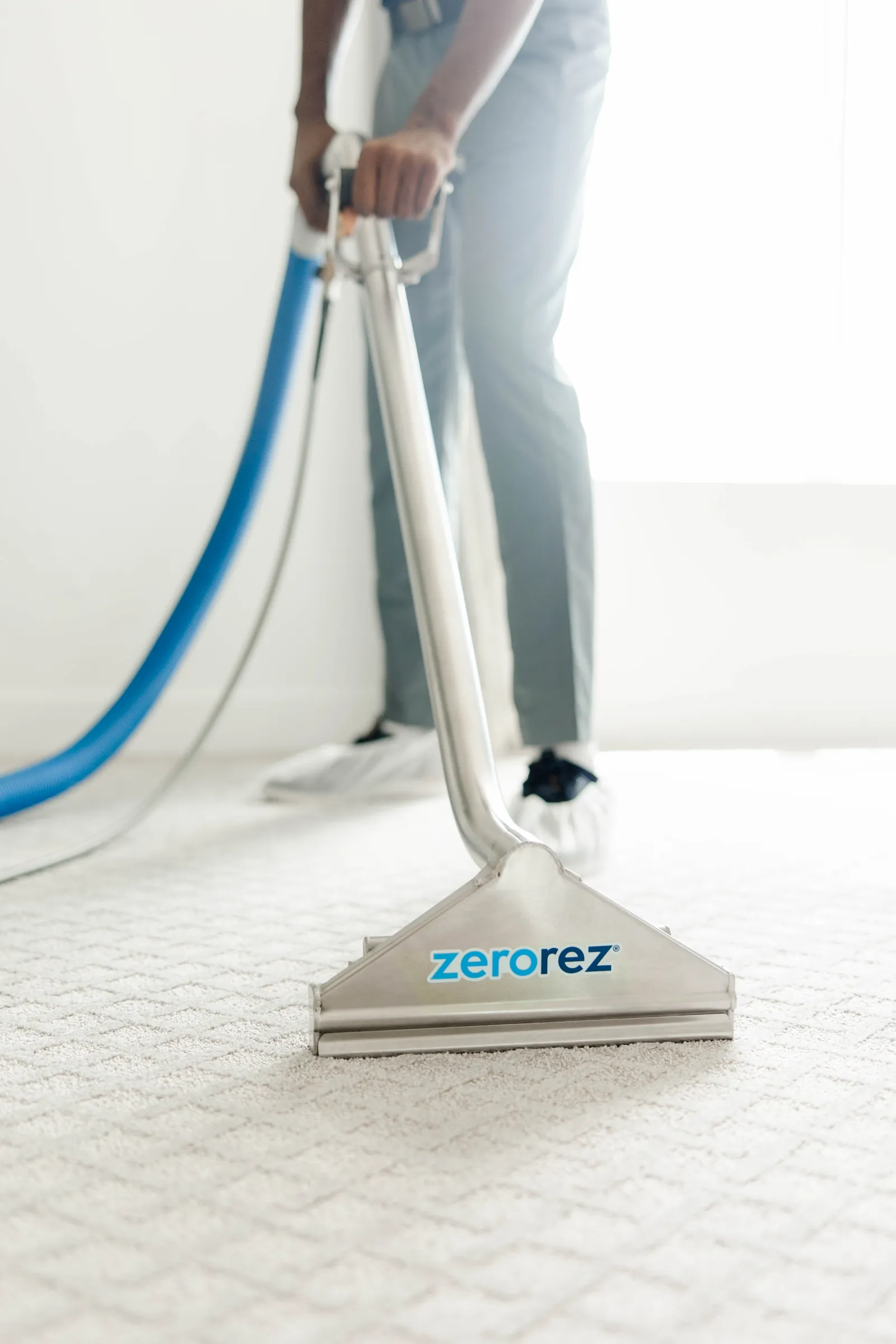
3 Top Benefits of Carpet for Allergies
Hypoallergenic carpets are ideal for people with or without allergy problems due to various reasons:
- Resistant to moisture: They have moisture-resistant properties, so mildew and mold don't thrive on them.
- Resistant to allergens: Most hypoallergenic carpets have short fibers and tight loops, making it difficult for allergens to thrive there.
- Easy to clean: The longer the fibers, the more challenging it is to clean the carpet. High-quality hypoallergenic carpets have short fibers, making the removal of dirt, dust, and other allergens easier as your vacuum works more efficiently at removing them regularly.
The Best Carpet Care Measures for Allergy Sufferers
Unlike air ducts, dirty carpets cause allergies when they harbor allergens.
Hypoallergenic and non-hypoallergenic carpets need proper care because, when neglected, allergens thrive in them. The allergens may be transferred into the air when walking across your carpet and trigger allergic symptoms.
Below are the best carpet care measures for allergy (and asthmatic) sufferers.
Regularly Cleaning Your Carpets
Have a cleaning schedule and religiously follow it to ensure that your carpet is always clean and free of allergens. Vacuum frequency does have variable, but as a general rule you should clean your carpet at least twice every seven days using a vacuum fitted with a clean vacuum filter.
Then be sure to hire Zerorez® to professional clean your carpets, at least once a year.
Acquiring Hypoallergenic Dogs
Heavily shedding pets are a threat to people with allergies and asthma. When they shed, carpets trap the dander and later transfer it into the air you breathe, triggering allergic reactions.
Living with clean dog breeds to help maintain a clean home could incredibly lower per dander in your home, thereby minimizing allergy triggers.
You can also consider hypoallergenic dogs; they don't shed much dander.
Using a Vacuum Cleaner With a Filter
Vacuum cleaners with poor containment or filtration release allergens and other contaminants into the air, which could trigger allergies or worsen them.
Invest in a top-quality vacuum cleaner with HEPA filtration and a powerful motor.
Check if the vacuum cleaner has a seal of approval or the Green Label offered by the Carpet and Rug Institute (CRI).
Using Dehumidifiers
High humidity levels cause mold growth in some carpets, hence becoming allergy (and asthma) triggers. Prevent mildew and mold growth by maintaining healthy humidity levels at home or in the office.
Hiring a Professional Carpet Cleaner
Periodically, hire a professional to deep-clean your carpet. Deep cleaning effectively removes pet dander, embedded dirt, stains, and more.
Carpet manufacturers recommend hot water extraction carpet cleaning as the best cleaning method, and that it needs to be professionally cleaned every 12 to 18 months, in order to maintain your carpet warranty.
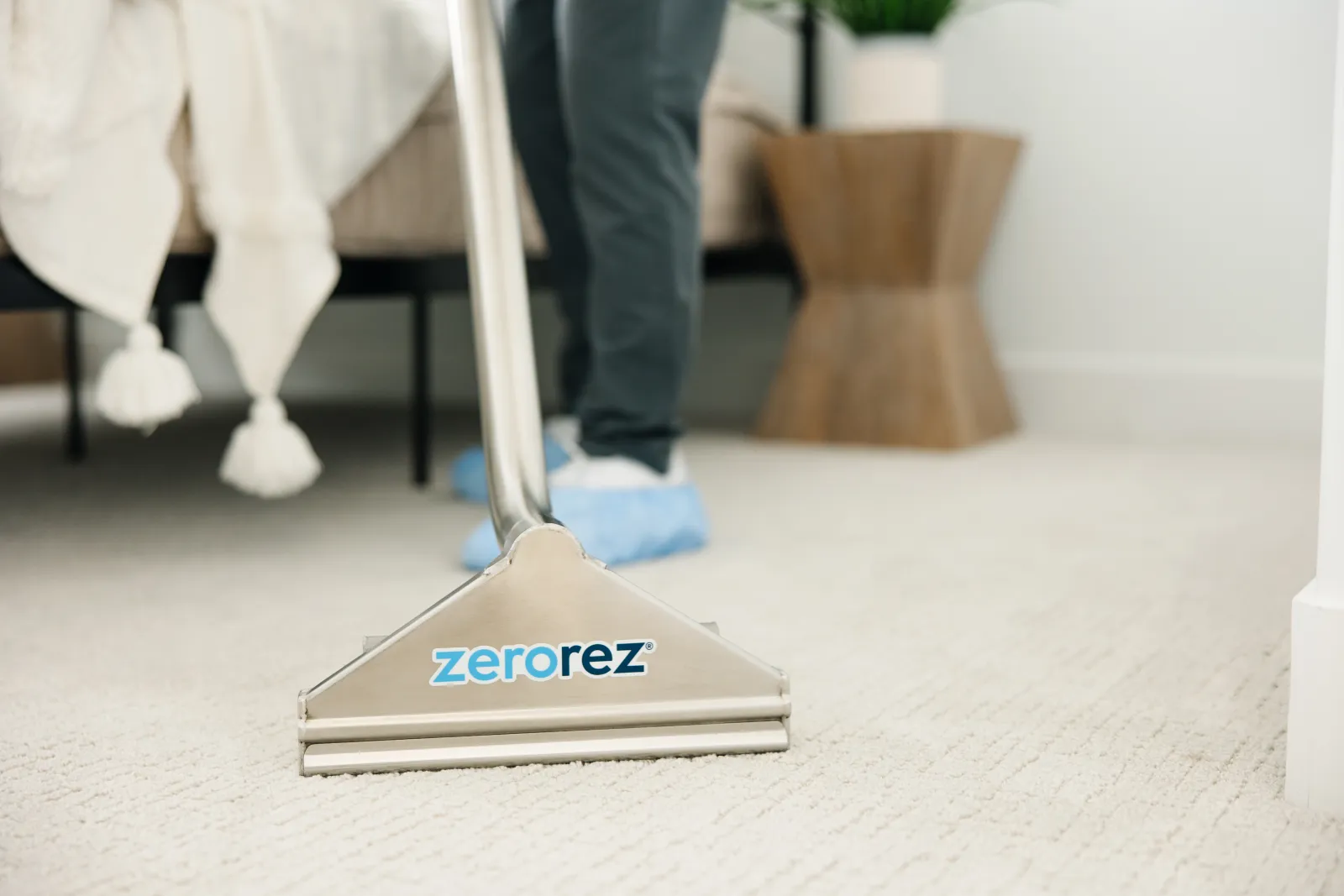
FAQs
Which Is the Best Rug for Allergies?
If you have seasonal or all-year-round allergies, only buy rugs with the green label.
The material of a rug is also crucial. Rugs of wool, olefin, nylon, and polyester are great for allergies.
Zerorez: Gotta Love It Guarantee®!
In addition to choosing the right type of carpet to minimize your risk of aggravating your allergies, you must have a consistent cleaning routine to remove all those trapped particles in your carpet.
Zerorez has offered thousands of customers credible professional carpet cleaning services for years. Hire us to join the list of our happy clients!
Schedule a service or call us at 866-937-6739.
